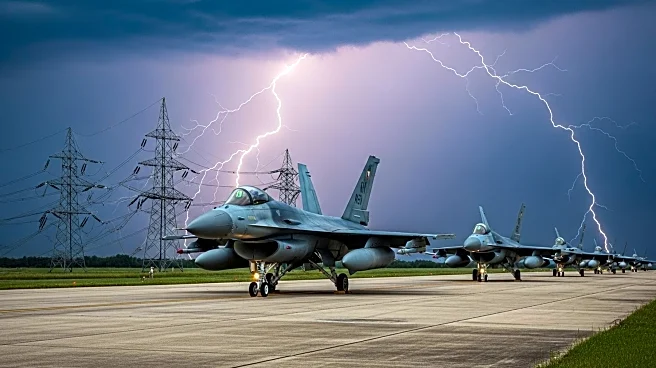What's Happening?
Russia launched missile and drone attacks on Ukraine, focusing on the western city of Lviv and targeting power plants, including one in Zaporizhzhia. The attacks resulted in the death of five people and left tens of thousands without electricity. Poland responded by scrambling fighter jets to ensure the safety of its airspace, with NATO aircraft also deployed. Ukrainian President Volodymyr Zelensky reported that Russia fired over 50 missiles and around 500 drones. The attacks led to significant disruptions in public transport and power supply in affected regions.
Why It's Important?
The escalation of attacks on Ukraine's western regions, including Lviv, highlights the ongoing threat to civilian infrastructure and the potential for regional instability. Poland's response by deploying fighter jets underscores the heightened security concerns among NATO members and the risk of the conflict spilling over into neighboring countries. The attacks on energy infrastructure are particularly concerning as they threaten to exacerbate humanitarian conditions in Ukraine, especially with winter approaching. The situation may prompt increased international support for Ukraine and further strain relations between Russia and Western nations.
What's Next?
Ukraine is expected to seek additional international assistance to enhance its air defense systems and protect critical infrastructure. The attacks may lead to further diplomatic and military responses from NATO and the European Union. Poland and other neighboring countries will likely maintain heightened military readiness to prevent any potential spillover of the conflict. The international community will continue to monitor the situation closely, with potential implications for future peace negotiations and regional security dynamics.









